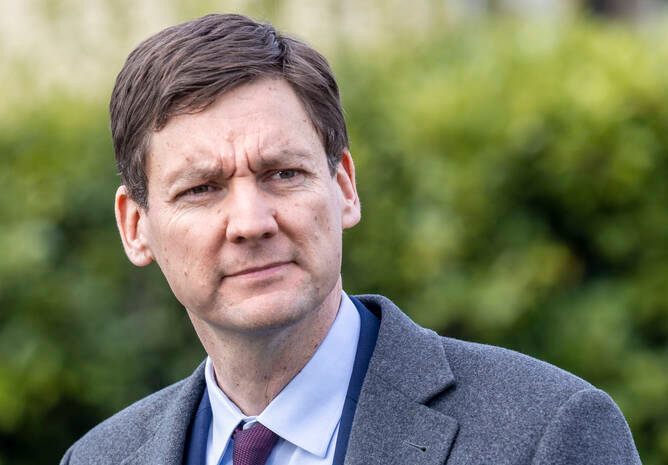British Columbia Premier David Eby remains optimistic that aluminum produced in the province will continue to see global demand, despite the recent tariffs imposed by the U.S. on Canadian aluminum products.
Eby, speaking Monday before a trip to Washington, expressed confidence that the province’s aluminum would remain a vital commodity, even as U.S. President Donald Trump signed an executive order to impose a 25% tariff on all steel and aluminum imports — a move that Eby described as “taxing themselves.” The tariffs are expected to affect B.C. companies like Rio Tinto, which operates the BC Works aluminum smelter in the province’s northern region.
“This is a big headache for companies like Rio Tinto, but I’m confident in the products we produce here, and in the incredible ability of our ports to get these commodities onto the water and into global markets,” Eby said. “People need what we produce here in B.C.”
The U.S. domestic production of aluminum totals approximately 1.5 million tonnes annually, yet the demand stands at 5 million tonnes — meaning U.S. tariffs effectively create a self-imposed tax, according to Eby. This discrepancy underscores the necessity of aluminum imports, including from B.C., to meet the country’s demand.
The province is already working on securing alternative markets for its aluminum. Ravi Kahlon, the provincial minister coordinating B.C.’s response to the tariff situation, stated that Eby had met with Rio Tinto, and the company is confident in finding new buyers for aluminum produced at its Kitimat facility. Kahlon emphasized that while the U.S. tariffs may have short-term effects, B.C. aluminum will remain in demand, especially given its low-carbon production process, a feature that is highly sought after in global markets.
“There is a global demand for B.C. aluminum, and especially for the low-carbon products we produce,” said Kahlon. “We are confident that fresh markets will be found in a fairly quick way.”
The imposition of these tariffs comes just a week after Trump temporarily paused plans to implement a broader 25% tariff on Canadian and Mexican goods, including a 10% levy on Canadian energy products.
Kahlon also highlighted the importance of interprovincial trade, noting that B.C. has been at the forefront of discussions to eliminate trade barriers within Canada. “We’ve been pushing for years to remove these barriers, and now we’re seeing real progress in conversations with our national partners,” he said. “I’m hopeful that with the political will of all provinces, we’ll see these issues resolved soon.”
Rio Tinto’s Kitimat aluminum smelter and hydropower facility remains one of B.C.’s top contributors to manufacturing GDP, generating over $517 million in 2023 and producing 377,000 tonnes of aluminum.
Despite the challenges posed by U.S. tariffs, both Eby and Kahlon are confident that B.C. aluminum will find its place in the global marketplace, ensuring the continued strength of the province’s aluminum industry.
SEO Tags: B.C. aluminum, U.S. tariffs, David Eby, Rio Tinto, Kitimat aluminum smelter, U.S. imports, British Columbia economy, low-carbon aluminum, trade barriers, interprovincial trade, Vancouver economy, global demand, steel and aluminum tariffs, Trump executive order, Canadian aluminum, aluminum production, U.S. aluminum imports, manufacturing GDP, Canadian aluminum industry.
Source: The Canadian Press


